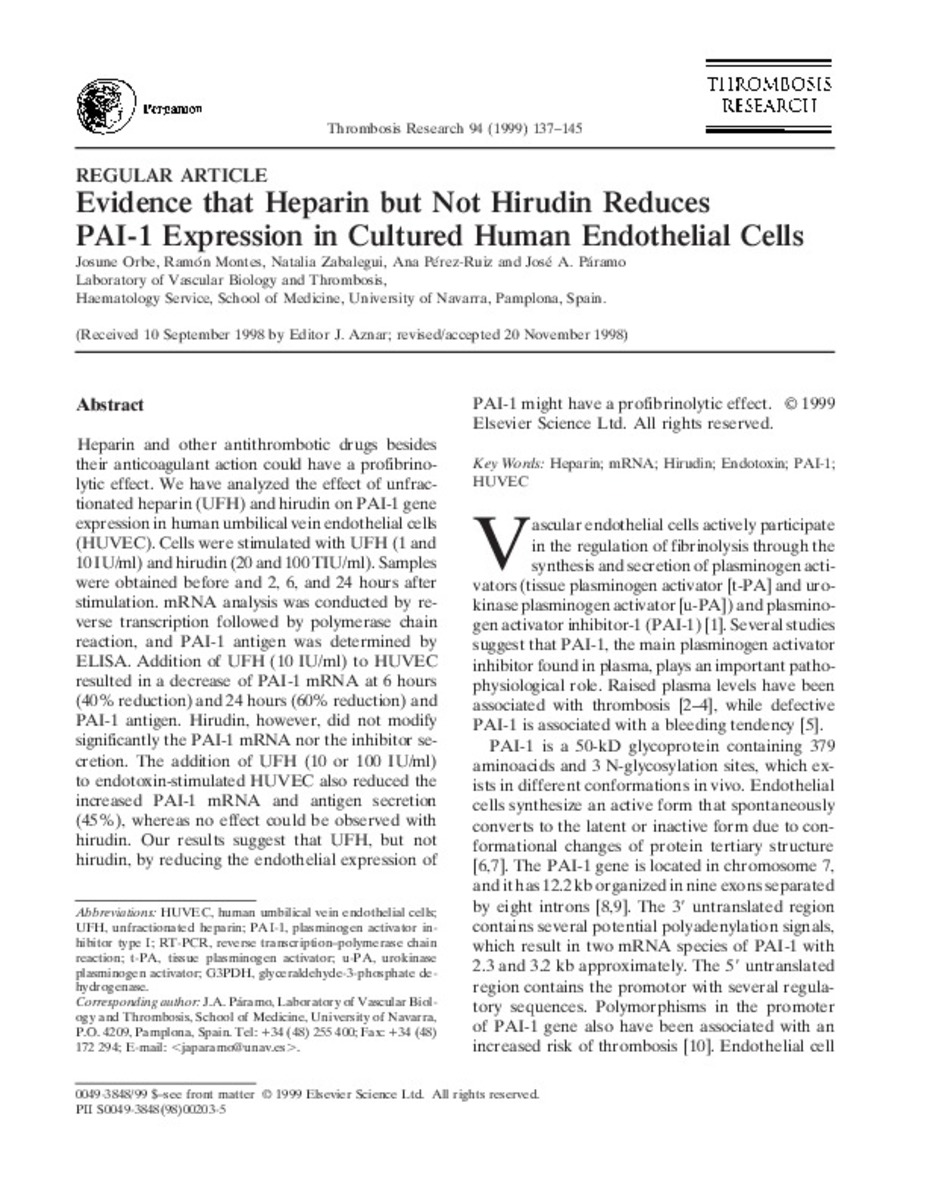Evidence that heparin but not hirudin reduces PAI-1 expression in cultured human endothelial cells
Files in This Item:
Statistics and impact
Items in Dadun are protected by copyright, with all rights reserved, unless otherwise indicated.







